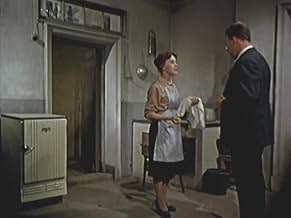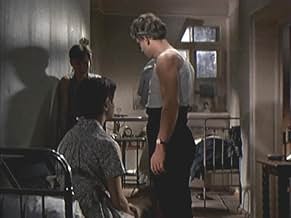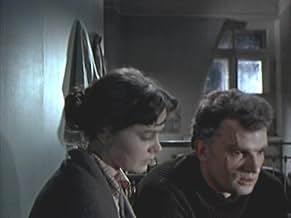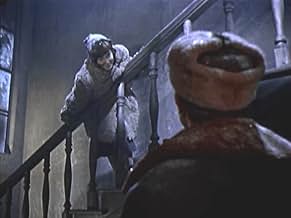During the 1950s Sasha Lvova reminisces about the WW2 years when she fell in love with Soviet fighter pilot Aleksei Astakhov.During the 1950s Sasha Lvova reminisces about the WW2 years when she fell in love with Soviet fighter pilot Aleksei Astakhov.During the 1950s Sasha Lvova reminisces about the WW2 years when she fell in love with Soviet fighter pilot Aleksei Astakhov.
- Awards
- 2 wins
Natalya Kuzmina
- Lyusya
- (as N. Kuzmina)
Vitaliy Konyaev
- Petya
- (as V. Konyayev)
Georgiy Kulikov
- Mitya
- (as G. Kulikov)
Leonid Knyazev
- Ivan Ilyich
- (as L. Knyazev)
Georgiy Georgiu
- Nikolai Avdeyevich
- (as G. Georgiu)
Oleg Tabakov
- Seryozhka
- (as O. Tabakov)
Vitali Bondarev
- Yegorka
- (as Vitalik Bondarev)
Vladimir Anisko
- Aleksey's Friend
- (as V. Anisko)
Konstantin Bartashevich
- Flight Director
- (as K. Bartashevich)
Tamara Nosova
- Factory Girl
- (as T. Nosova)
Valentin Abramov
- Episode
- (uncredited)
- Director
- Writer
- All cast & crew
- Production, box office & more at IMDbPro
Storyline
Did you know
- TriviaThe action takes place in the USSR in the 1940s - 1950s.
- ConnectionsFeatured in Fejezetek a film történetéböl: A szovjet film 1953-1970 (1990)
Featured review
Grigory Chukrai made the classic "Ballad of a Soldier" a few years earlier in black and white, and I was curious about how he would live up to that standard in a later film. It proved in colour but deals with the same subject - the war and its human consequences, but although the story is better in "Ballad of a Soldier", here it is more complicated and deeper. A hero pilot in the war returns home after the war in a ruined state, maimed for life, and the party that extolled him as a hero as long as he wasn't shot down will now have nothing to do with him and even excludes him from the party, on very curious grounds: since he allowed himself to be captured and didn't shoot himself to avoid it, he is regarded as next to a traitor and at least an outcast. It doesn't help that he explains that he was unconscious when he was captured, and that he later even tried to escape (with the dogs of the guards giving him terrible scars in the bargain), - although a war hero pilot, he receives an inhuman treatment after the war, and he was not alone. This happened in every country that was in the war, and innumerable of these war soldiers ended up as alcoholics or worse. It was a problem that lasted up to 50 years after the war. Grigory Chukrai does not succeed in going into depth with this problem, but only showing it is good enough.
On the whole, it stands a comparison with the masterpiece "Ballad of a Soldier" quite well, and there are some scenes that even surpass it, especially the famous train scene, when women, mothers, widows, wives and daughters, gather on the train platform to salute their men passing by to the frontier, but the train passes too quickly for anyone to be recognized. It is almost as heartrending a scene as the Odessa stairs in "Battleship Potemkin", and there are many scenes here made with equally expressionistic and advanced visionary delicacy.
On the whole, it stands a comparison with the masterpiece "Ballad of a Soldier" quite well, and there are some scenes that even surpass it, especially the famous train scene, when women, mothers, widows, wives and daughters, gather on the train platform to salute their men passing by to the frontier, but the train passes too quickly for anyone to be recognized. It is almost as heartrending a scene as the Odessa stairs in "Battleship Potemkin", and there are many scenes here made with equally expressionistic and advanced visionary delicacy.
Details
Contribute to this page
Suggest an edit or add missing content
































